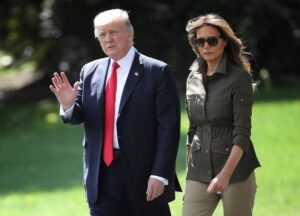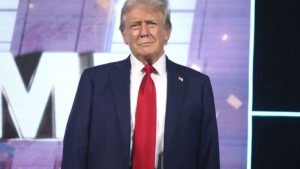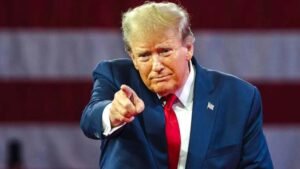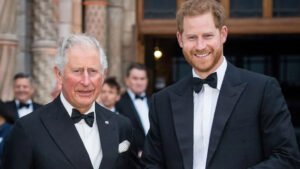
Photo: Reuters
Donald Trump recently took aim at billionaire Mark Cuban, mocking his golf skills and accusing him of going “rogue” amid Cuban’s political campaigning for Vice President Kamala Harris. The former president’s comments came as Cuban has been vocal about his opposition to Trump’s potential return to the White House, arguing that Trump’s reelection would be detrimental to the country.
The feud between Trump and Cuban intensified over the weekend when Trump shared a video on his social media platform, Truth Social, featuring Elon Musk making light of Cuban during an interview. In the clip, Musk, who has been supportive of Trump, jokingly said, “I saw an interview with Mark Cuban and, uh, what’s her name again? Rachel Maddow,” before adding, “But I couldn’t tell which was which.”
In a follow-up to the video, Trump unleashed his own criticisms of Cuban, branding him a “loser.” He stated, “Mark Cuban is a Loser. Wouldn’t take his phone calls anymore while at the White House, and he went rogue.” Trump’s remarks further escalated the tension, labeling Cuban a “weak and pathetic ‘bully,'” adding that he has “nothing going.”
In addition to his personal attacks, Trump turned his attention to Cuban’s golfing abilities, claiming that he has a “really low clubhead speed” and dismissing him as “a total non-athlete!” This jab at Cuban’s golf game reflects a common rivalry among public figures, particularly among those in the sports and entertainment industry, where athleticism is often a point of pride.
For context, clubhead speed refers to “how fast the clubface moves during the swing,” according to golf instructional company GOLFTEC. In golf, a higher clubhead speed typically correlates with greater distance and performance, making Trump’s remarks not only a personal insult but also a comment on Cuban’s skills as a golfer.
Cuban, a prominent entrepreneur and owner of the Dallas Mavericks, has made headlines for his outspoken political views. His decision to support Kamala Harris marks a notable shift in the political landscape, especially as he continues to clash with fellow billionaire Elon Musk, who has rallied behind Trump’s campaign. Cuban’s criticism of Trump has resonated with many voters who are concerned about the former president’s policies and the impact they could have on the nation.
The ongoing feud between Trump and Cuban highlights the intersection of politics and personal rivalries among high-profile figures. As both billionaires engage in public discourse, their differing viewpoints serve to exemplify the polarized political climate in the United States. While Trump continues to assert his influence among certain voter demographics, Cuban’s support for Harris represents a faction of the business community that is wary of Trump’s return to power.
As the 2024 presidential election approaches, the tension between these influential figures may shape the narratives surrounding their political alignments and public perceptions. With both Cuban and Musk taking opposing stances, the rivalry not only reflects personal differences but also the broader divisions that exist within American society today.
Ultimately, Trump’s derogatory remarks about Cuban encapsulate the contentious nature of modern politics, where personal attacks often intermingle with serious policy discussions. As both men navigate their respective political journeys, their interactions will likely continue to capture public attention and provoke discussion about the implications of their rivalry.





